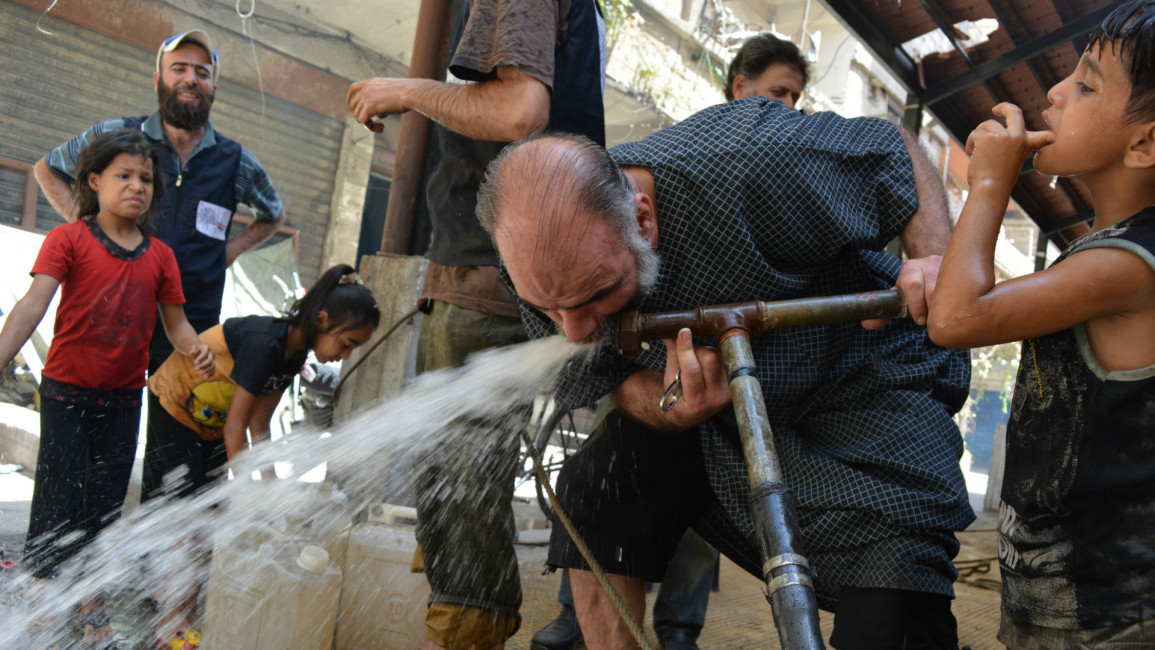Damascus accuses rebels of spiking water supply with diesel
Water into the Syrian capital Damascus were cut on Friday amid claims by the regime that rebels have contaminated the supply line with diesel.
Damascus relies on the al-Fija spring, located in the rebel-held Wadi Barada valley in the mountainous border region, north-west of the Syrian capital close to the Lebanese border.
Rebel positions in the area were targeted in aerial sorties carried out by Syrian regime aircraft, and by shelling, according to the Syrian Observatory for Human Rights.
On Friday, more than 10 people were killed when more than 60 barrel bombs were dropped in the Wadi Barada area.
One media outlet affiliated with the Lebanese Shia paramilitary group Hizballah - active in Syria in support of President Bashar al-Assad - said on Friday that rebel groups in Wadi Barada had refused to leave the area.
This triggered attacks by the regime's armed forces on the area, backed by air assaults.
Meanwhile, the Iranian state owned Arabic language outlet al-Alam claimed that the Syrian army’s high command had presented rebels in Wadi Barada an ultimatum: surrender Wadi Barada in return for safe-passage to the rebel-held north-western Idlib province, or face being targeted in renewed attacks.
In the past week forces loyal to Syrian President Bashar al-Assad have declared victory over rebel forces in the previously contested city of Aleppo, formerly Syria's commercial hub.
Concerns have since been raised by humanitarian groups and international monitors that the Assad regime will now turn its focus - and firepower - towards other rebel-held areas of Syria, notably in Idlib.
The Damascus countryside - in particular Eastern Ghouta - have also been predicted to come under new assaults.
In recent months, through a combination of settlement deals and military offences, the Syrian regime supported by Russian airstrikes and a number of Iran-backed militias and Hizballah, have taken control of previously rebel-held enclaves and territories around the Syrian capital.
The Syrian regime terms such settlement deals as "national reconciliation" though they are routinely preceded by sieges and aerial attacks on localities aimed at pummelling rebel groups into submission, while civilians caught in the cross-fire quickly run out of vital resources.
This year such deals have taken place in areas including Moadamiyeh al-Sham. in Damascus' rural outskirts, al-Waer neighbourhood in Homs, Qudsayia, and al-Hameh.
Most recently, in the past few weeks such agreements have taken place in Khan al-Sheikh and al-Tal, both located in the Damascus countryside.



